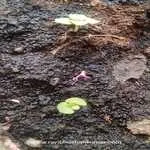
Pani pani Re
A few weeks ago, It was an unusually hot afternoon in Mumbai when I decided to call my friend, Rajesh, in my native village in Bihar. The city was sweltering, but nothing could have prepared me for the conversation that was about to unfold.
I dialled Rajesh's number, expecting our usual chat filled with laughter and village anecdotes. Instead, I was greeted with an irritated voice. "What do you want?" Rajesh snapped.
Taken aback, I asked, "What's wrong, Rajesh? Why are you so upset?"
"It's this heat," he replied, his voice strained. "The sun is relentless. And on top of that, the hand pump is dry, the wells have no water, and the ponds are just patches of cracked earth. There's no relief anywhere."
I tried to console him, but it was clear that the situation was dire. After our brief conversation, I decided to call another friend, Sunil, hoping for a more uplifting chat. However, Sunil was equally agitated. "This heat is unbearable, and there's no water! Everyone is on edge," he said before abruptly hanging up.
These conversations left me deeply troubled. The rising temperatures and water scarcity were not just inconveniences; they were serious threats to the well-being of the people in my village.
Understanding the Crisis
Bihar, like many parts of India, is experiencing extreme weather conditions. The temperature is soaring to unprecedented levels, and the water table has dropped significantly. Hand pumps, which have been the lifeline for many villagers, are now dry. Wells and ponds, once reliable sources of water, are completely parched.
This situation is not just about discomfort; it’s a crisis that affects every aspect of life. Agriculture, the primary livelihood for many in the village, is severely impacted. Without water, crops cannot grow, and without crops, there is no food or income. The daily routines of fetching water have turned into desperate searches for any remaining sources.
The Human Impact
The lack of water and the relentless heat have left people irritable and stressed. Simple conversations are filled with frustration, and tempers flare easily. This stress is not just emotional; it's physical and mental fatigue that comes from battling the elements every single day.
Families are forced to ration the little water they have, prioritizing drinking and cooking over bathing and washing. This leads to hygiene issues, which can result in the spread of diseases. Children, who should be playing and studying, are instead helping their parents in the arduous task of finding water.
What Can Be Done?
Addressing this crisis requires both immediate and long-term solutions. In the short term, it's crucial to provide relief to the affected areas. This can include:
1. Emergency Water Supply: Government and non-governmental organizations can step in to supply water through tankers.
2. Community Awareness: Educating villagers on water conservation techniques can help in managing the limited resources more efficiently.
3. Rainwater Harvesting: Encouraging and assisting with the installation of rainwater harvesting systems can provide some relief when the rains finally come.
For the long term, more sustainable solutions are needed:
1. Reforestation: Planting trees can help in improving the water table over time.
2. Sustainable Agriculture: Promoting farming techniques that require less water can help in reducing the dependence on water.
3. Infrastructure Development: Building dams and reservoirs to store water during the rainy season can provide a buffer during dry spells.
A Call to Action
The conversations I had with Rajesh and Sunil were a wake-up call. The water crisis in Bihar is a stark reminder of the challenges posed by climate change and the urgent need for sustainable practices. While the government and organizations have a significant role to play, every individual can contribute to water conservation efforts.
Let’s come together to support our parched villages, spread awareness, and work towards a future where access to water is not a daily struggle but a given right. Every drop count, and it’s time we all do our part to ensure a sustainable and water-secure future for all.









9a7ocu
ycmUPf RUv SQlHoe kRO
ycmUPf RUv SQlHoe kRO
ycmUPf RUv SQlHoe kRO
ycmUPf RUv SQlHoe kRO
ycmUPf RUv SQlHoe kRO
ycmUPf RUv SQlHoe kRO